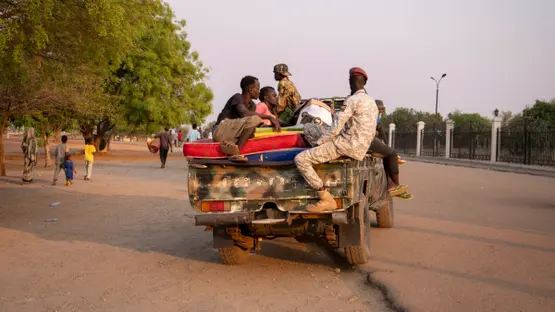Sudan’s Rapid Support Forces (RSF) and allied political and armed groups have signed a charter to establish a parallel government, in a move that risks deepening the country’s fragmentation amid a nearly two-year civil war.
The agreement, signed late on Saturday in Kenya, aims to create a “government of peace and unity.”
Among the signatories is Abdelaziz al-Hilu, a prominent rebel leader who controls large parts of South Kordofan state and has long advocated for Sudan to become a secular state.
The RSF, a paramilitary group accused of widespread human rights abuses including genocide, has seized much of the western Darfur region and parts of Kordofan during the conflict. However, it has recently been pushed back from central Sudan by the Sudanese army, which has condemned the formation of a rival administration.
The charter outlines plans for a “secular, democratic, non-centralized state” with a single national army, though it allows armed groups to continue operating.
The signatories claim the new government is intended to unify the country and end the war, rather than divide it. They argue that the army-aligned government, currently based in Port Sudan, has failed to achieve these goals.
The Sudanese army, led by General Abdel Fattah al-Burhan, has dismissed the move as illegitimate. Earlier this week, Sudan passed constitutional changes granting the military expanded powers, and al-Burhan announced plans to form a “war Cabinet” soon.
The RSF’s leader, General Mohamed Hamdan Dagalo, known as Hemedti, was sanctioned by the U.S. earlier this year over allegations of atrocities.
He previously shared power with the army and civilian politicians following the ousting of longtime leader Omar al-Bashir in 2019. However, the fragile alliance collapsed in 2021 when the military and RSF staged a coup, removing civilian leaders. Tensions over the integration of their forces later erupted into open conflict.
The war has plunged Sudan into an unprecedented humanitarian crisis, with half the population facing hunger and famine reported in multiple areas. The UN has expressed concern over the latest developments, warning that the formation of a parallel government could further destabilize the country.
The charter was signed during a closed-door event in Kenya, contrasting with a more high-profile gathering in Nairobi earlier this week. Both events have drawn criticism from Sudan’s government and domestic backlash against Kenyan President William Ruto, who has been accused of exacerbating regional tensions.
Sudan has also accused the United Arab Emirates (UAE) of providing military and financial support to the RSF—a claim supported by UN experts and U.S. lawmakers. The UAE has denied the allegations.




